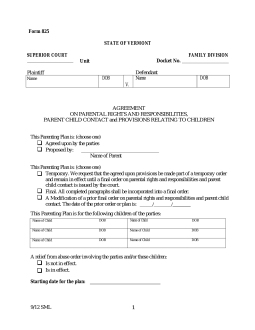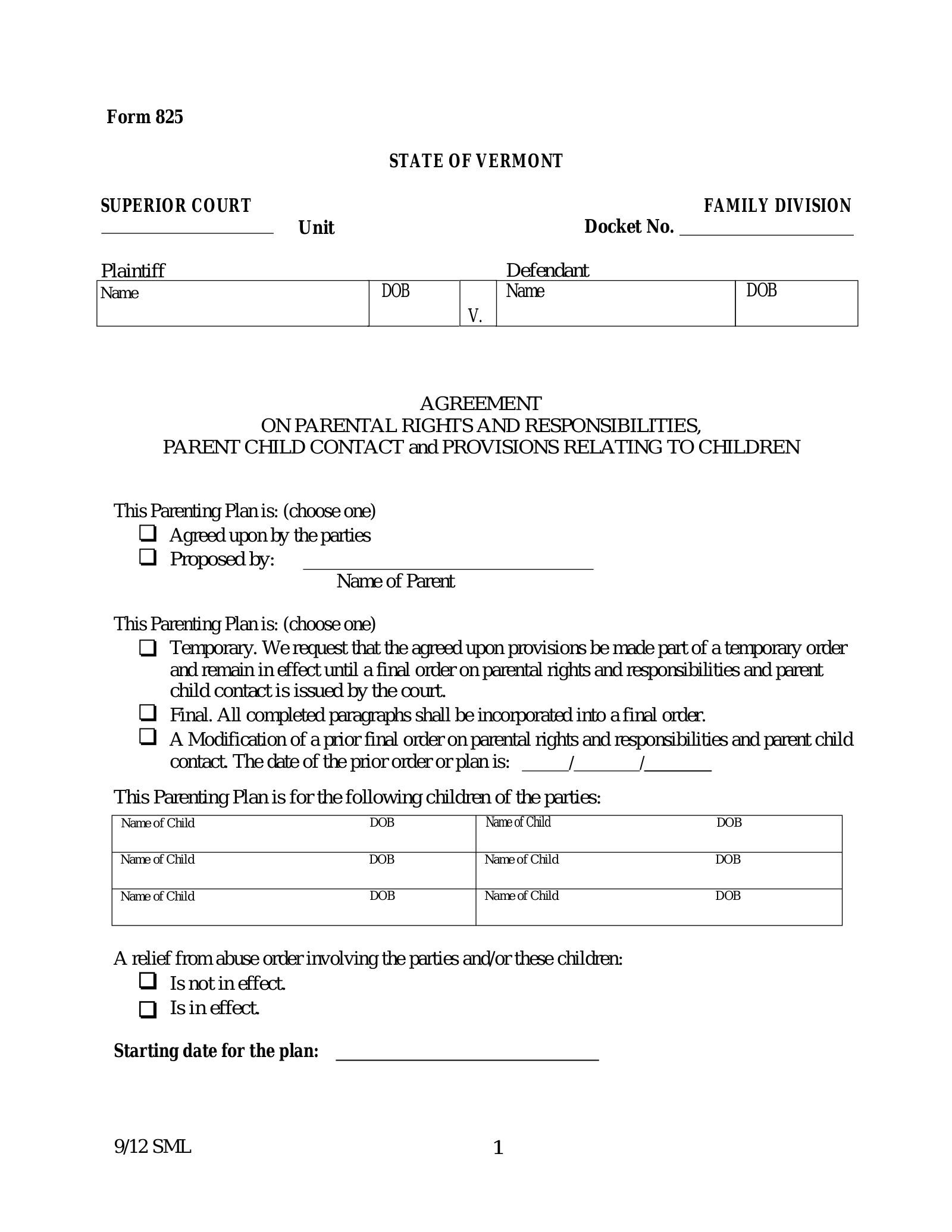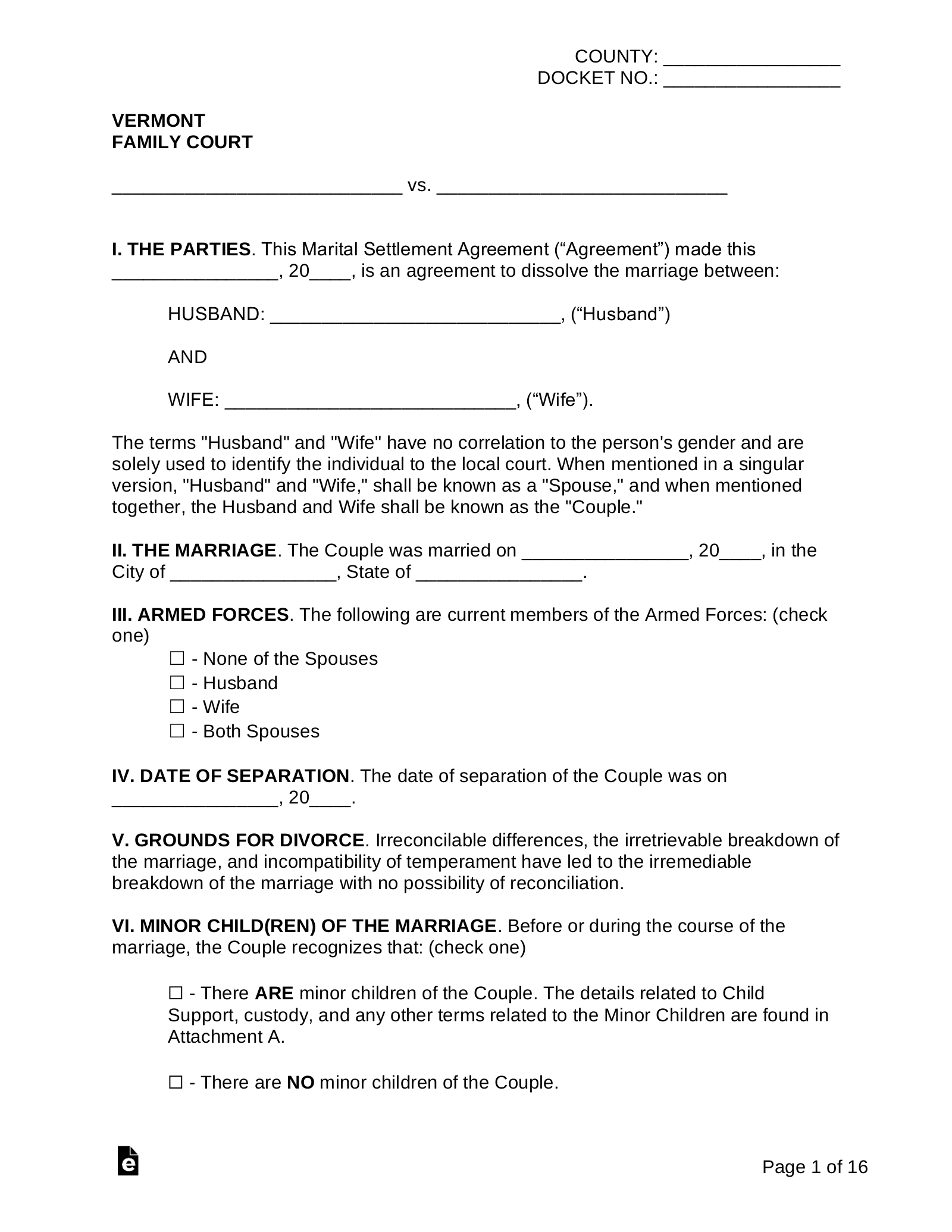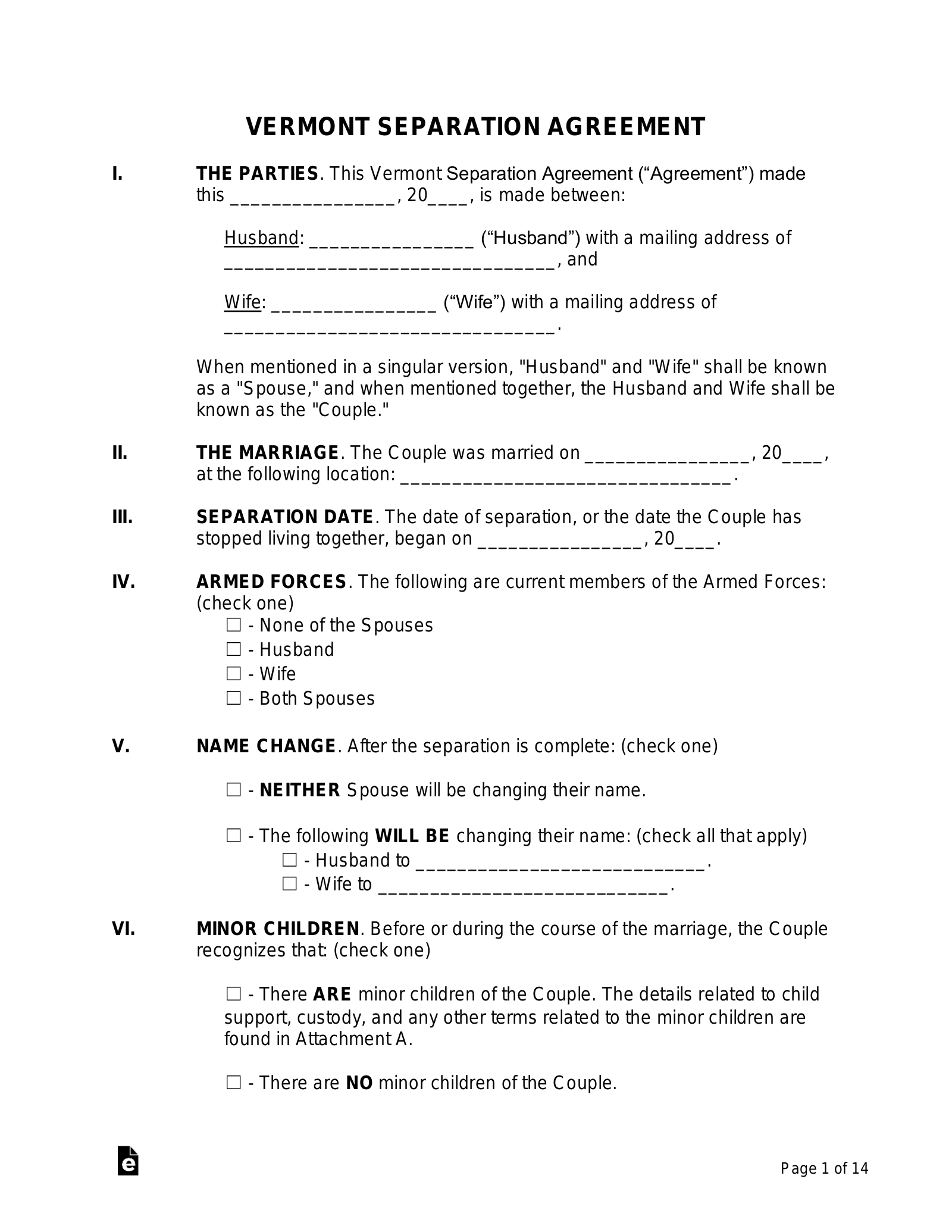Updated September 22, 2023
A Vermont custody agreement is a legal document that maps out how two separated parents will share time with and decision-making authority over their child. Vermont courts use the term “parental rights and responsibilities” in place of the term “custody.” In determining each parent’s rights and responsibilities, judges consider a range of factors but prioritize the child’s best interest.
Child Custody Factors
Vermont courts consider the following information when determining a custody arrangement:
- The relationship of the child with each parent
- The ability and disposition of each parent to provide the child with love, affection, and guidance
- Each parent’s ability to provide the child with food, clothing, medical care, other material needs, and a safe environment
- The ability of each parent to meet the child’s developmental needs
- The child’s adjustment to housing, school, and community and the potential effect of any change
- The ability and disposition of each parent to foster a positive relationship and frequent and continuing contact with the other parent
- The relationship of the child with any other person who may significantly affect the child
- The ability and disposition of the parents to communicate, cooperate with each other and make joint decisions
- Evidence of abuse and the impact of the abuse on the child and on the relationship between the child and the abusing parent
Table of Contents |
How to File for Custody in Vermont
In Vermont, custody agreements are worked out during divorce proceedings. If unmarried parents separate, then the mother automatically gets custody. In order to apply for custody or visitation, the father must file for parentage.[1]
1. Agree on a Parenting Plan
Parents should discuss the terms of custody and try to reach an agreement to create a joint parenting plan. As long as the plan is determined to serve the child’s best interest, the court is likely to approve a parenting plan that both parents agree upon.
The parents can also agree to most of the plan and leave a few provisions up to the court if they’re unable to settle those matters on their own.
2. Calculate Child Support
In Utah, child support obligation is determined by the sum of both parents’ gross monthly income and the number of overnights the child will stay with each parent. Use the state’s Child Support Calculator to estimate how much child support may be ordered by the court.
3. Complete and File Paperwork
Choose one of the following forms to complete based on the circumstances of the case:
File the completed paperwork with the clerk of the Vermont Superior Court Family Division in the county where the child lives. Filing fees apply.[2]
4. Serve Papers
The parent who files the forms is responsible for serving copies of those documents to the other party. This can be done via certified mail or a process server. To ask the court to serve the documents, fill out and file a Request to Serve by Leaving with the Clerk form.
5. Attend Mediation/Coordination
If parents cannot agree on the terms of a parenting plan, the court offers a Family Mediation Program or a Parent Coordination Program, which aims to help parents reach a compromise and, ultimately, agreement. These programs are subsidized for low-income parents.
6. Attend Hearing
If parents do agree on the terms of the plan, the final order must be approved by a judge at a formal court hearing. Parents who don’t agree will attend a mandatory contested hearing, at which both must present evidence and testimony attesting to their capacity to care for the child well. In either situation, the clerk will issue a hearing date.
The court can assign a guardian ad litem, or a guardian who represents the best interest of the child, to be present at a hearing.[3]
Custody Laws
- Child’s Preference: Not considered
- Domestic Violence: 15 V.S.A. § 665a
- Uniform Child Custody Jurisdiction and Enforcement Act: 15 V.S.A. § 665(e)
- Visitation: 15 V.S.A. § 668a
Related Forms




